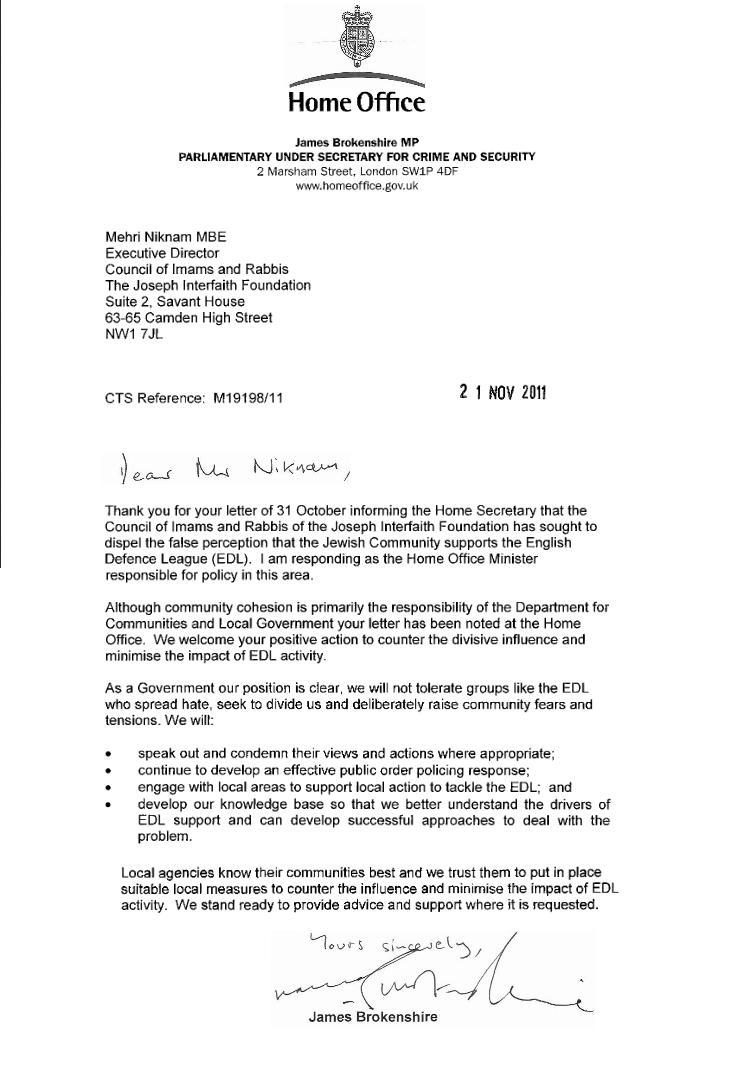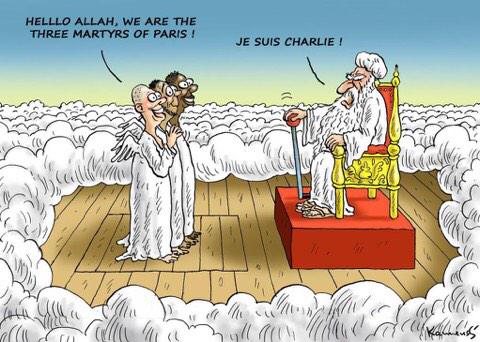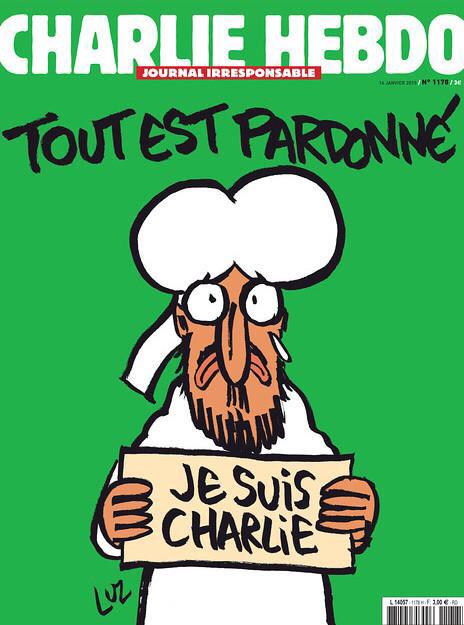Having a mooch around looking at various Muslim reactions to recent events and I came across this letter from the Home Office to one of these so called ‘interfaith’ groups…..whether you believe in the genuine good intentions of those who set it up others can better inform you than me.
If you cannot read that here it is:
Home office
James Brokenshire MP
PARLIAMENTARY UNDER SECRETARY FOR CRIME AND SECURITY
2 Marsham Street, London SWlP 4DF
www.homeoffice.gov.uk
Mehri Niknam MBE
Executive Director
Council of lmams and Rabbis
The Joseph lnterfaith Foundation
Suite 2, Savant House
63-65 Camden High Street
NW1 7JL
CTS Reference: M1919811 1 2 1 NOV 2011
Thank you for your letter of 31 October informing the Home Secretary that the
Council of lmams and Rabbis of the Joseph lnterfaith Foundation has sought to
dispel the false perception that the Jewish Community supports the English
Defence League (EDL). I am responding as the Home Office Minister
responsible for policy in this area.
Although community cohesion is primarily the responsibility of the Department for
Communities and Local Government your letter has been noted at the Home
Office. We welcome your positive action to counter the divisive influence and
minimise the impact of EDL activity.
As a Government our position is clear, we will not tolerate groups like the EDL
who spread hate, seek to divide us and deliberately raise community fears and
tensions.
We will:
- Speak out and condemn their views and actions where appropriate;
- Continue to develop an effective public order policing response;
- Engage with local areas to support local action to tackle the EDL;
- And develop our knowledge base so that we better understand the drivers of
EDL support and can develop successful approaches to deal with the
problem.
Local agencies know their communities best and we trust them to put in place
suitable local measures to counter the influence and minimise the impact of EDL
activity. We stand ready to provide advice and support where it is requested.
Signed James Brokenshire
I wonder if the BBC received a letter along similar lines as part of an orchestrated media campaign against the EDL?
Quite clearly the government set out to crush the EDL…despite it merely being an organistaion that spoke out about extremist Islam…..in fact it said what the BBC’s John Ware said on Panorama last night….only they were decried as Islamophobes and racists ‘polluting’ people’s minds if I remember correctly what Sarah Montague said…..the interview that Mehdi Hasan thought too easy going, so much so that he created his own list of questions that the BBC should ask Tommy Robinson….and you know what the BBC obliged, Andrew Neil, of all people, being Hasan’s stooge sent in to do his dirty work a couple of days later. Fast movers when they want to be in reaction to certain ‘listener’s complaints’!
No doubt the German government has learnt much from the British on how to malign, discredit and sideline such groups…groups like Pegida are in the firing line whilst Islamist groups like the MCB get handouts and knighthoods and extremists like Tariq Ramadan actually advise the government on Islam and freedom of religion! But then we did have the rather dodgy Baroness Warsi in charge of that….the same Baroness who wanted to disarm Israel and arm Hamas!
Couldn’t make it up could you?
Look forward to a John Ware investigation into that web of intrigue and betrayal.








